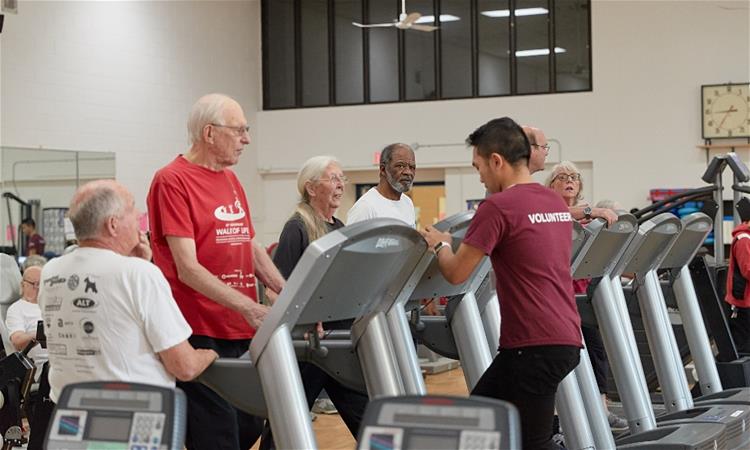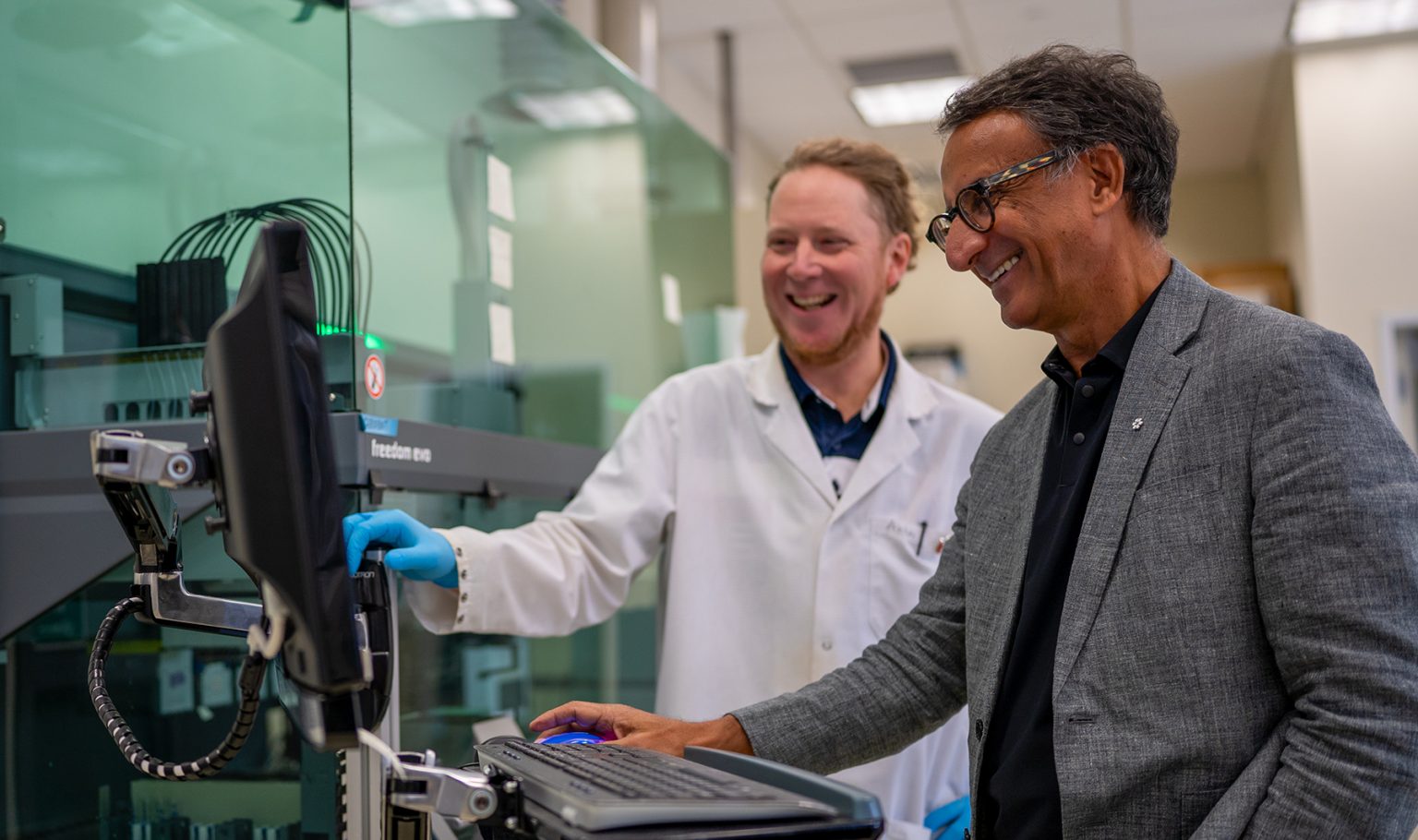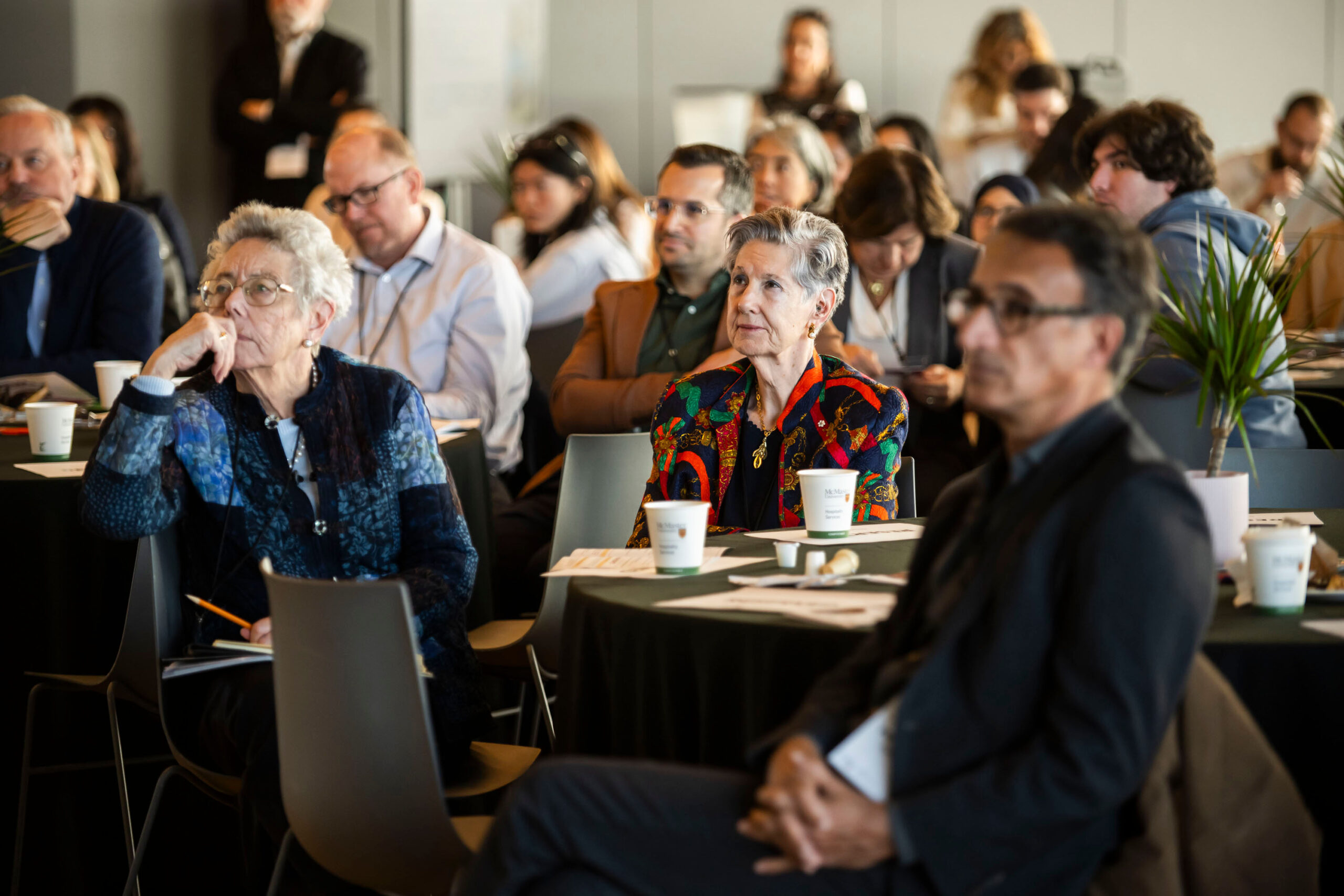
McMaster Kinesiology students lead participants in the MacSeniors Exercise and Wellness Program through a series of activities designed to monitor their fitness level and guide their exercise programming during Senior Fit Test Day at McMaster’s Physical Activity Research Centre of Excellence (PACE).
Published November 26, 2018 | By ​Erica Balch
Though it’s sometimes challenging, Maureen Harper makes it a point to get to the MacSeniors Exercise and Wellness Program at McMaster’s Physical Activity Research Centre of Excellence (PACE), as often as she can.
“I started in May and it wasn’t easy to get a routine going, but now I’m feeling so much better,” says Harper, one of a number of seniors from the Hamilton community who regularly attends the program which offers supervised guided and prescribed aerobic and strength, as well as balance training for seniors.
“My breathing has improved, and so has my ability to use my arms and my legs, also I just feel stronger – I’m glad I stuck it out.”
Recently, Harper was back on campus to find out just how far she’s come. She and others in the MacSeniors program took part Senior Fit Test Day at PACE, a day of activities designed to monitor their fitness level and guide their exercise programming.
“What we’re doing is assessing different components of fitness that the participants may need to improve upon, and how they are changing over time” explains Angelica McQuarrie, Registered Kinesiologist and Program Coordinator at PACE. “All of our seniors perform this test upon entrance to the program, then they have the opportunity to be re-assessed every six months. Senior Fit Test Day is a way to check in and see where they’re at.”
Guided by Registered Physiotherapist, Marianne Longo and assisted by trained professional placement students from McMaster’s Kinesiology program, the seniors complete six activities that assess their upper and lower body strength and flexibility, as well as their endurance, walking speed and agility.
“We want to help people individually as much as possible,” says Longo. “So, if they’re not quite up to average in the flexibility in their lower body, we can show them ways to improve that – things they can incorporate into their regular routine. This testing helps us tailor physical activity to their individual needs.”
According to Stuart Phillips, a professor in McMaster’s Department of Kinesiolog, Director of PACE and member of the McMaster Institute for Research on Aging, fitness level is a key indicator associated with healthy aging – as critical as any other variable such as blood pressure, heart rate, or even blood cholesterol, to determining future health.
“If there’s one single activity that people could embrace as they get older to age successfully, it’s to be physically active,” says Phillips who is leading, or involved in, a number of research projects related to healthy aging.
“Statistics show us that by the year 2025, one in four Canadians will be over the age of 65, so we have to come up with solutions that allow these people to age successfully and to live independently in their homes as long and they can. Physical activity is one of the primary paths to achieving that goal,” he says.
PACE, a state-of-the-art exercise research and training centre affiliated with the university’s world-renowned Department of Kinesiology, is home to a host of programs that support healthy aging. Through a number research and community initiatives, scientists, students and staff are devoted to studying and improving health and well-being among older adults and people with chronic disease.
Learn more about how researchers at PACE and the McMaster Institute for Research on Aging (MIRA) are helping seniors age more successfully:
This article was first published on Brighter World. Read the original article.

